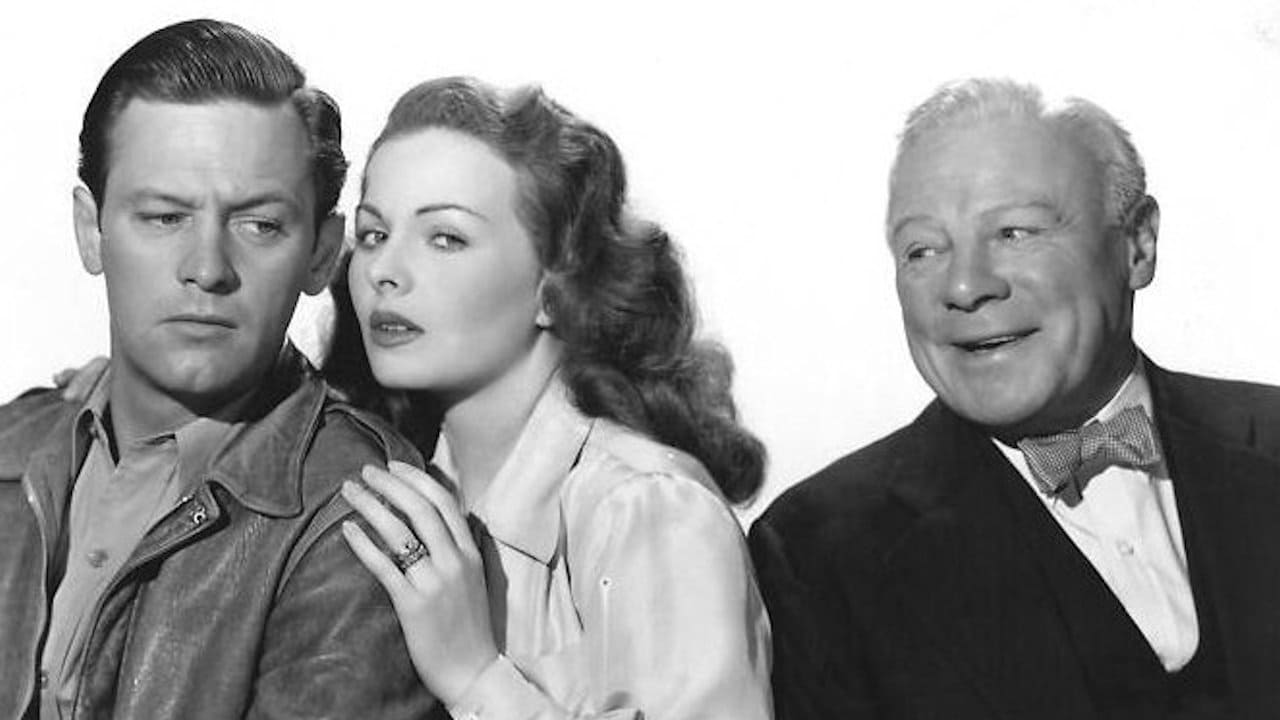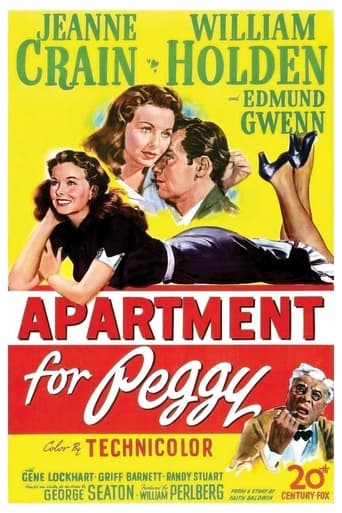

I'll be honest... my Fall Sundays are spent watching football. So when our hometown NFL team, the only game allowed to be televised at that time, began to stink more than our cat's litter box left for a couple of weeks, I flipped over to TCM. This movie was starting so I figured I would watch it. I did not expect much, but after a few minutes I was pleasantly surprised! The movie is based on a serious problem faced by so many of our soldiers and their families after WWII. This movie looks at the serious problems of family housing at universities across the country who were all too eager to collect the GI Bill money from them. Jeanne Crain plays the part of an enthusiastic wife of a student wonderfully. She is so amusing, yet serious when needed. William Holden is great as the ex-GI, student, and Father-to-be, struggling to give his family a great future while trying to survive the present. Edmund Gwenn has another great performance. I'm so glad my NFL game was a bust, or I would have missed this great movie.
... View MoreA charming domestic comedy leavened a bit with some dark shades, which gives the movie a distinctive edge. It uses the post-WWII GI college boom and simultaneous housing shortage as plot points, which may confuse current viewers a bit. Gwenn plays a college professor who is contemplating suicide because he's being forced into retirement. On a chilly winter afternoon while feeding birds on a park bench, he meets up with chatty young Jeanne Crain, wife of GI student William Holden, who tells Gwenn how desperate they are for housing, especially with a baby on the way. Gwenn agrees to put in a good word for her with college administrator Gene Lockhart, and Lockhart decides to place the couple in Gwenn's attic, which Crain re-makes into a cozy little apartment. Of course, Gwenn is a bit cold about the whole thing at first, but eventually he warms to them, agreeing to teach an informal class for the GI wives who don't want to feel left behind by their husbands, and even giving up the idea of killing himself. There are complications: Crain suffers a miscarriage; Holden decides he doesn't want to wait for a degree and drops out to take a job at a used car dealership; Gwenn tries to talk him into coming back to school, and when he thinks he's failed, he returns to his suicidal ways, but all things are put right in the end. Much of the charm of the film is in its details: Crain is forever making up statistics to argue her side of any point; Gwenn cusses by reeling off the names of the books of the Bible; in the one moment that made me laugh out loud, Gwenn tells a bad joke to his class of housewives and Lockhart gives the camera a wonderful split-second reaction. I loved the use of the beautiful Irish song, "I Dreamt That I Dwelt in Marble Halls" in a couple of scenes.
... View MoreThis is a very sweet film, with wonderful performances. It tells a simple story of the GIs returning from WWII, eager to marry, start families, and "make something of themselves." Aside from being very entertaining, this film is a useful as an indication of the American mindset after that war. Working class men were given the opportunity to attend college for free on the GI Bill of Rights, and their wives also wanted to benefit from the educational experience they probably could not have even dreamed of having only five years earlier. The film tosses off messages of freedom, equality and democracy almost casually in the discussions the characters have among themselves. My favorite scenes are first, in the laundromat, where a painting of women at the riverside beating their clothing on rocks is prominently displayed; and then the first session of the wives' informal philosophy class, wherein the women get so excited to be exchanging ideas about the world's great thinkers and, ultimately, come up with some great ideas of their own. In its own small way, this is a groundbreaking film.
... View MoreThis is a Hollywood attempt at 'writing between the lines' regarding the true under-pining of what this movie represented. The owning class did not want some G.I. who just scraped the French mud off him attending college. Yeah, perhaps it was important to beat the Germans and the Japanese but PLEASE do we really have to let them in OUR universities? Even the esteemed educator, Hutchings, objected to G.I. 'invading' his university when, clearly, they were not, 'university material'. This movie shows the struggle the working class had in getting a university education. Actually, it represents a form of bravery that this movie was ever produced. I wonder how it managed to evade HUAC's attention.-30-
... View More